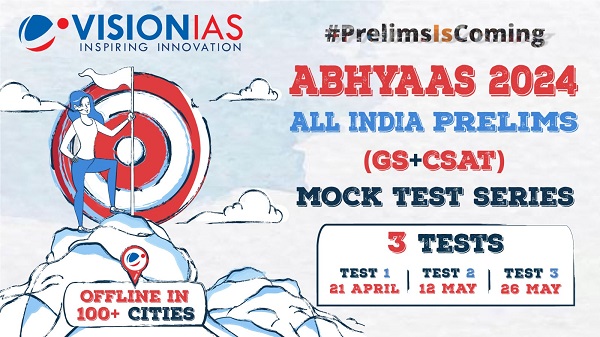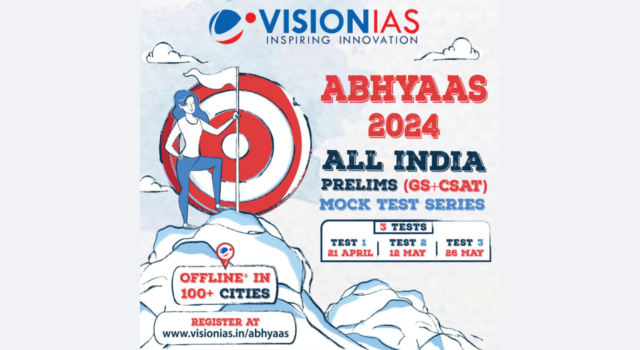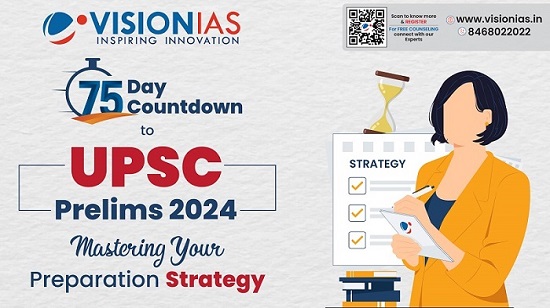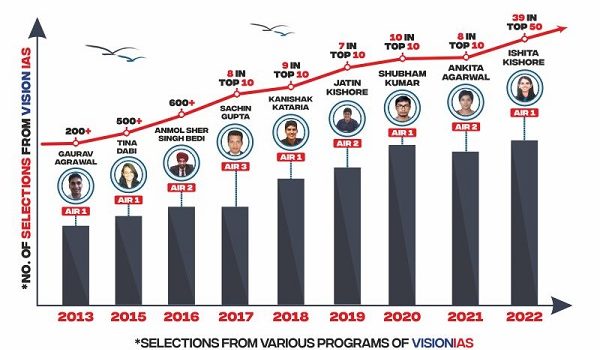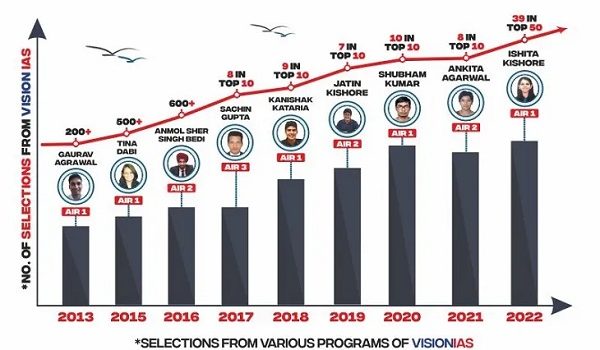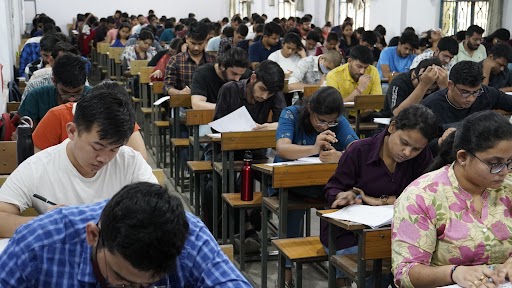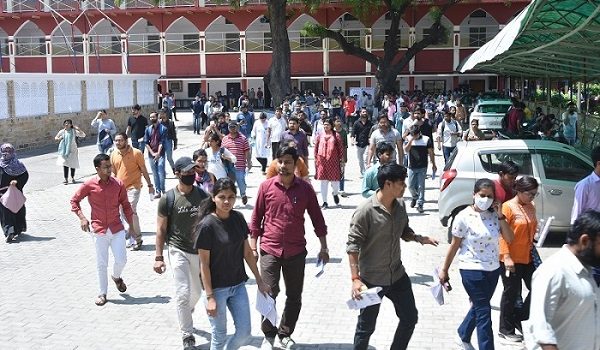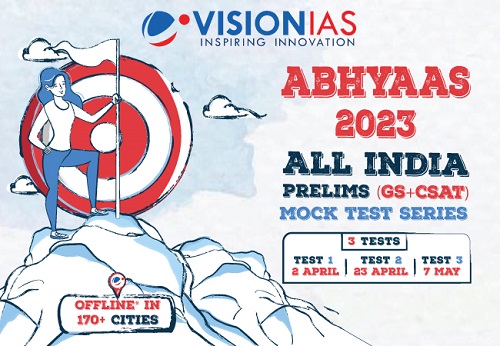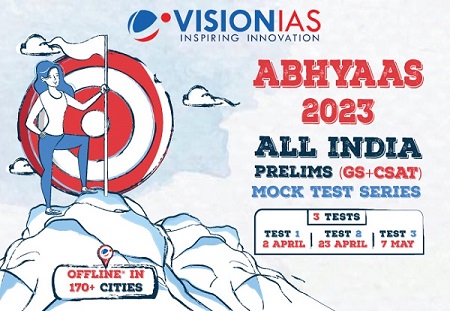The UPSC Civil Services Examination is one of the most prestigious exams in India with lakhs of aspirants striving to find a place in the final merit list each year. The exam is conducted in three stages – Prelims, Mains, and Personality Test.
The Prelims exam consists of two papers- General Studies (GS) and Civil Services Aptitude Test (CSAT). This exam evaluates aspirants on various aspects of the examination such as their general knowledge, mental agility, critical thinking, analytical skills, memory, application of knowledge, time management, and other relevant factors.
With the Prelims Exam to be held on 16th June 2024, the remaining two months necessitate a smart and efficient preparation strategy. To crack the prelims exam, it’s important for the aspirants to focus on effective revision of both static and current affairs coupled with engaging in simulated mock tests that mirror the UPSC exam environment.
The Importance of Simulated Mock Tests
Solving mock tests is crucial for UPSC prelims success as it ensures a comprehensive understanding and improvement in key areas essential for prelims exam success such as
- Simulating Exam Conditions: Mock tests replicate the actual exam environment, including time constraints and question patterns. This simulation helps candidates acclimatize to exam pressure, making them more comfortable and confident on the actual exam day.
- Identifying Strengths and Weaknesses: Taking mock tests allows candidates to identify their strong and weak areas. It provides valuable insights into which topics need more focus and practice.
- Improving Time Management: Simulated mock test helps candidates practice allocating time to different sections and questions, ensuring they complete the paper within the stipulated time.
- Building Exam Temperament: They help in developing the mental stamina needed to maintain focus and concentration throughout the exam duration.
- Optimizing Exam Performance: One can refine problem-solving abilities and test-taking strategies, like smart question selection and efficient elimination methods, to boost scores and increase their chance of passing preliminary exams.
- Familiarizing with Exam Pattern: Becoming familiar with the exam pattern and question types through mock tests helps reduce anxiety and boosts confidence levels.
- Elevating CSAT Readiness: Through targeted practice, these mock tests elevate a candidate’s readiness for the CSAT, refining their problem-solving and analytical skills essential for clearing this paper.
The preparedness for the Mock Tests and UPSC Prelims exam greatly relies on use of validated and effective learning resources. They also facilitate interactive learning, smart revision, and effective recall. VisionIAS Quick Revision Module(QRM) is one such intelligently designed and developed resource to maximze the learning outcomes for students in an efficient manner.
Abhyaas Prelims 2024: UPSC Prelims Simulator
Abhyaas 2024 All India Prelims Mock Test Series is an excellent opportunity for aspirants to assess themselves and enhance their readiness for the exam. This Initiative is designed to simulate the UPSC Prelims-like environment covering the entire syllabus with GS and CSAT tests being conducted on the same date.
Abhyaas Prelims is held across 100+ cities in the country in the offline mode. The schedule of the tests i.e. 21st April, 12th May, and 26th May provides aspirants with sufficient time to improve and reassess their preparation.
Due to its effectiveness in guiding the student’s preparation towards ultimate success, Abhyaas Prelims Mock Test Series is attempted by every 1 in 3 selected top 50 candidates in the UPSC Examination.
How Abhyaas Prelims 2024 helps in UPSC Prelims Preparation?
- Comprehensive Prelims Syllabus Coverage: Abhyaas Prelims 2024 mirrors the UPSC pattern, ensuring every aspect of the GS and CSAT syllabus is thoroughly covered. This alignment with the actual exam format equips aspirants with a broad and deep understanding of the high yielding topics, perfectly preparing them for exam day.
- All India Ranking: The All-India Ranking provides comparative standing among peers and acts as an added motivation for students to improve upon their ranking in the subsequent tests.
- Post-Test Analysis: One of the most significant benefits of Abhyaas lies in the post-test analysis. It allows aspirants to review their performance critically, identifying areas of strength and pinpointing those requiring more focus.
- Live Test Discussion: Abhyaas Prelims 2024 enriches preparation by live discussions with thorough question analysis, enabling aspirants to understand solution rationales, learn from mistakes, and gain strategic insights in real-time.
- Enhanced Retention: Abhyaas Prelims helps in the consolidation of knowledge and improves retention, making it easier for aspirants to recall information during the exam.
- Revision based on Analysis : Modifying study plan based on the analysis of Abhyaas performance aids in prioritizing topics that require more attention and revisio
- Personalized Mentoring Support: Access to experienced mentors and receiving personalized feedback can significantly enhance a candidate’s preparation strategy. Insightful feedback helps in fine-tuning preparation and rectifying errors, paving the way for improvement.
In a nutshell, simulated mock tests are invaluable tools in the arsenal of UPSC Prelims aspirants. They not only gauge one’s preparedness but also hone skills necessary for success in this competitive examination. Consistent practice with mock tests, combined with strategic preparation, will undoubtedly maximize your chances of clearing the UPSC Prelims.
“We are what we repeatedly do.
Excellence, then, is not an act, but a habit.” – Aristotle
Embrace this comprehensive preparation approach to maximize your potential and step confidently toward achieving your dream of becoming a civil servant.
Visit us at:
Or Call us at: 8468022022, 9019066066


